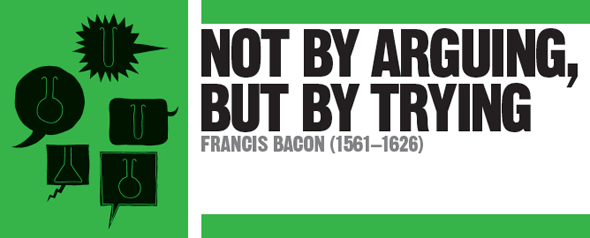
IN CONTEXT
Experimental science
4th century BCE Aristotle deduces, argues, and writes, but does not test with experiments – his methods persist for the next millennium.
c.750–1250 CE Arab scientists carry out experiments during the Golden Age of Islam.
1630s Galileo experiments with falling bodies.
1637 French philosopher René Descartes insists on rigorous scepticism and enquiry in his Discourse on Method.
1665 Isaac Newton uses a prism to investigate light.
1963 In Conjectures and Refutations, the Austrian philosopher Karl Popper insists that a theory may be tested and proved false, but cannot conclusively be proved correct.
The English philosopher, statesman, and scientist Francis Bacon was not the first to carry out experiments – Alhazen and other Arab scientists conducted them 600 years earlier – but he was the first to explain the methods of inductive reasoning and set out the scientific method. He also saw science as a “spring of a progeny of inventions, which shall overcome, to some extent, and subdue our needs and miseries”.
"Whether or no anything can be known, can be settled not by arguing, but by trying."
Francis Bacon
Evidence from experiment
According to the Greek philosopher Plato, truth was found by authority and argument – if enough clever men discussed something for long enough, the truth would result. His student, Aristotle, saw no need for experiments. Bacon parodied such “authorities” as spiders, spinning webs from their own substance. He insisted on evidence from the real world, particularly from experiment.
Two key works by Bacon laid out the future of scientific enquiry. In Novum Organum (1620), he sets out his three fundamentals for the scientific method: observation, deduction to formulate a theory that might explain what has been observed, and experiment to test whether the theory is correct. In The New Atlantis (1623), Bacon describes a fictitious island and its House of Salomon – a research institution where scholars carry out pure research centred on experiment and make inventions. Sharing those goals, the Royal Society was founded in 1660 in London, with Robert Hooke as its first Curator of Experiments.
See also: Alhazen • Galileo Galilei • William Gilbert • Robert Hooke • Isaac Newton